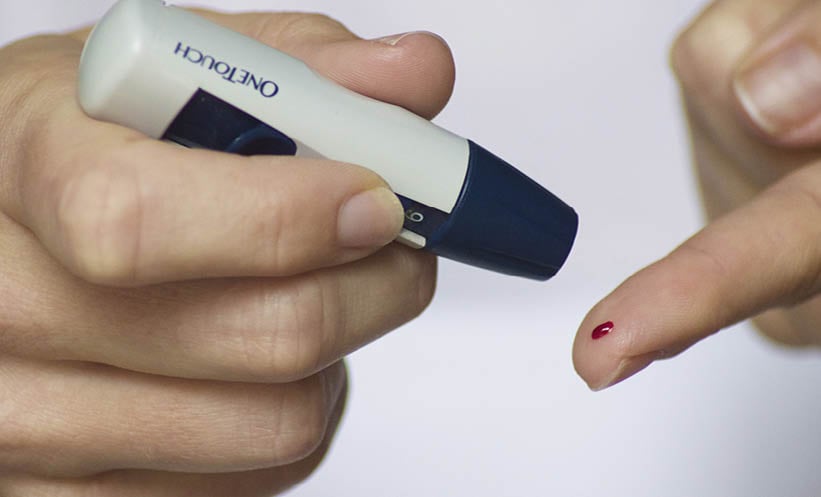PSORIASIS increases the risk of developing Type 2 diabetes mellitus; however, the reasons behind this link have not been reported. Now, researchers from King’s College London, London, UK, have gained important insights into the nature of this intricate connection, enhancing understanding of how dermatological conditions can impact overall health and wellbeing.
Known to affect around 2.2% of the USA population, psoriasis is a common condition characterised by red, itchy patches of skin and creates a huge burden for healthcare systems across the world. During the presentation of their findings at the recent annual conference of the Society for Endocrinology in Glasgow, UK, the team described how human and animal skin samples were applied with the immune response modifier imiquimod to create psoriasis models for investigation.
The team noted that the psoriatic mouse skin showed signs of inflammation and insulin resistance, which is a known risk factor for diabetes due to lack of removal of glucose from the bloodstream. Specifically, fat tissue showed a reduced uptake of glucose as a result of a reduction in the levels of glucose transporter type 4, while beta cells in the psoriatic mice demonstrated insulin overproduction, believed to be a counter mechanism to compensate for insulin resistance. “The laboratory model we used in this study closely resembles many of the major hallmarks of psoriasis, and we have observed some changes caused by the condition which reflect what is seen in a prediabetic patient,” concluded Ms Elizabeth Evans, King’s College London.
Although the results showed that psoriasis-related inflammation causes insulin resistance and increased insulin production, questions remain regarding the specific factors released by psoriatic skin causing these effects. “If we can pinpoint novel skin-derived factors that are directly affecting blood sugar control, they may lead to potential therapeutic targets for the treatment of diabetes or insulin resistance,” summarised Miss Evans. The team hope that these early results will lead to improved psoriasis treatment, as well as an increased understanding of how to reduce the risk of diabetes in psoriasis patients.







